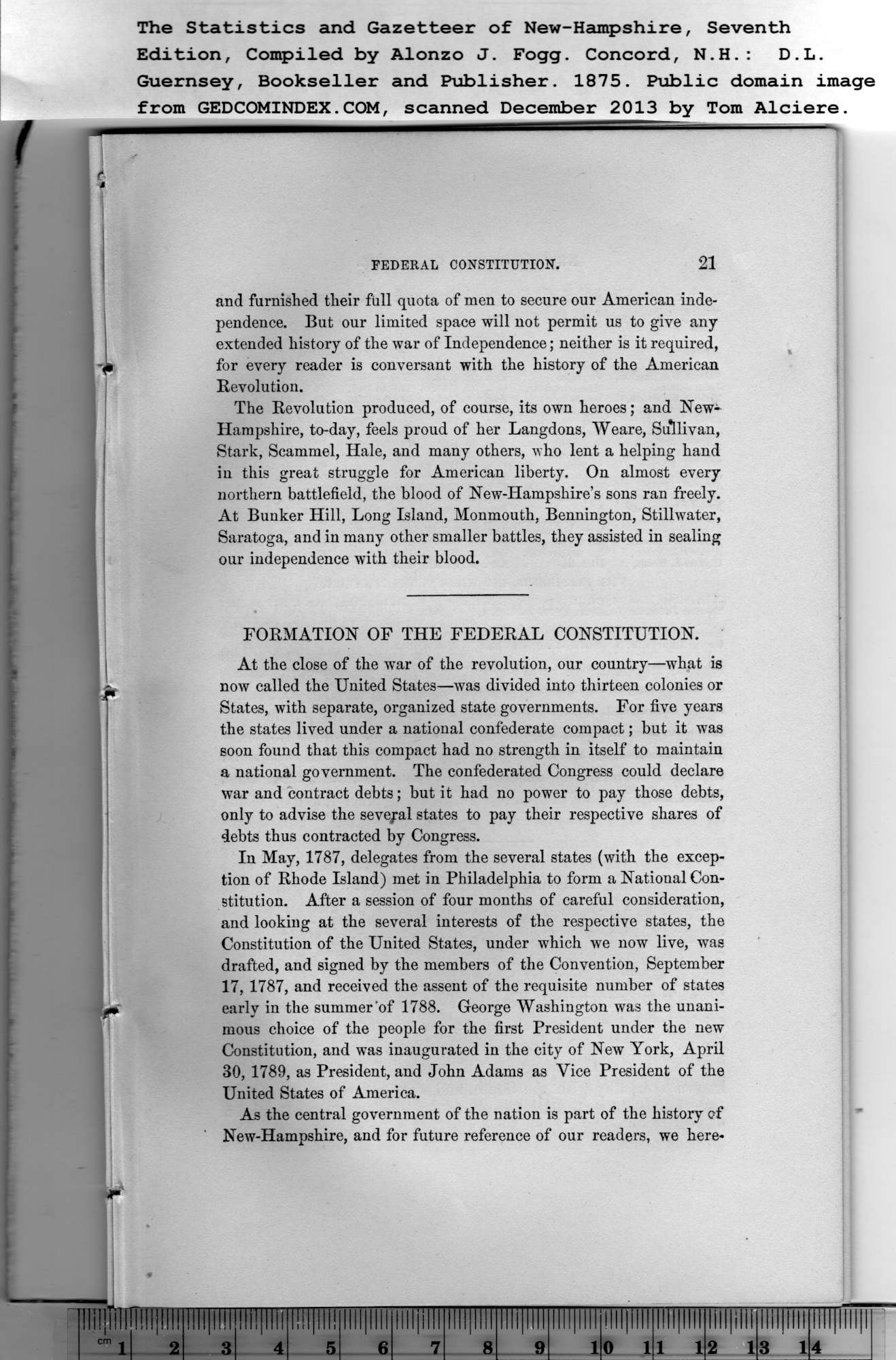|
|
FEDERAL CONSTITUTION. 21
and furnished their full quota of men to secure our American inde-
pendence. But our limited space will not permit us to give any
extended history of the war of Independence; neither is it required,
for every reader is conversant with the history of the American
Revolution.
The Revolution produced, of course, its own heroes; and New-
Hampshire, to-day, feels proud of her Langdons, Weare, Sullivan,
Stark, Scammel, Hale, and many others, who lent a helping hand
1 in this great struggle for American liberty. On almost every
northern battlefield, the blood of New-Hampshire’s sons ran freely.
At Bunker Hill, Long Island, Monmouth, Bennington, Stillwater,
Saratoga, and in many other smaller battles, they assisted in sealing
our independence with their blood.
FORMATION OF THE FEDERAL CONSTITUTION.
At the close of the war of the revolution, our country—what is
now called the United States—was divided into thirteen colonies or
States, with separate, organized state governments. For five years
the states lived under a national confederate compact; but it was
soon found that this compact had no strength in itself to maintain
a national government. The confederated Congress could declare
war and contract debts; but it had no power to pay those debts,
only to advise the several states to pay their respective shares of
debts thus contracted by Congress.
In May, 1787, delegates from the several states (with the excep-
tion of Rhode Island) met in Philadelphia to form a National Con-
stitution. After a session of four months of careful consideration,
and looking at the several interests of the respective states, the
Constitution of the United States, under which we now live, was
drafted, and signed by the members of the Convention, September
17, 1787, and received the assent of the requisite number of states
early in the summer'of 1788. George Washington was the unani-
mous choice of the people for the first President under the new
Constitution, and was inaugurated in the city of New York, April
30, 1789, as President, and John Adams as Vice President of the
United States of America.
As the central government of the nation is part of the history of
New-Hampshire, and for future reference of our readers, we here-
PREVIOUS PAGE ... NEXT PAGE
This page was written in HTML using a program written in Python 3.2
|
